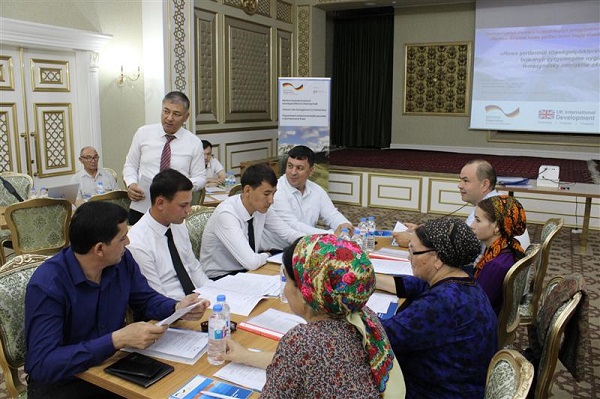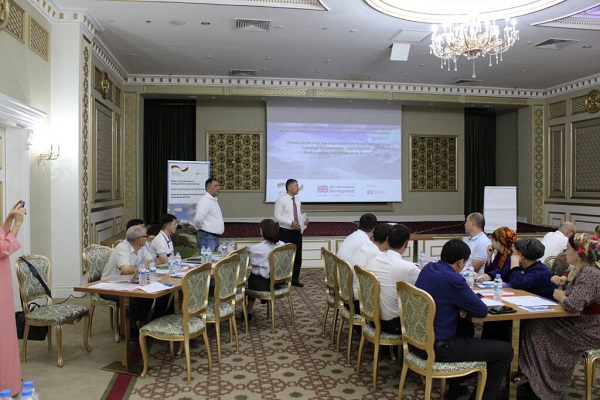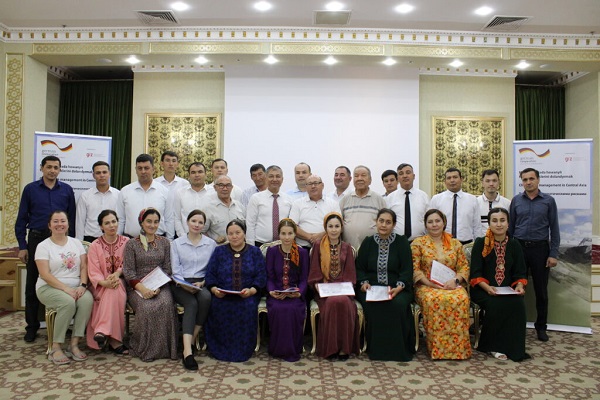A three-day training session on assessing climate risks in Murghab river bassin and adapting to climate change was held in Mary at the end of June. The event was organized as part of the collaboration between the Ministry of Environmental Protection of Turkmenistan and the regional program of the German Society for International Cooperation (GIZ).
The training brought together representatives from various institutions and organizations, including employees of scientific and production units of the environmental and agricultural sectors, the State Committee for Water Management, activists from the National Red Crescent Society of Turkmenistan and the Nature Protection Society, representatives of the Union of Industrialists and Entrepreneurs, the Civil Defense and Rescue Operations Department of the Ministry of Defense, and faculty members of the State Energy Institute of Turkmenistan in Mary.
The Murghab River is a vital source of water in one of the most arid regions of Central Asia. Flowing from Afghanistan into Turkmenistan’s Karakum Desert, it provides fresh water to communities, crops, and fragile ecosystems. Recent studies show that rainfall in the Murghab basin has significantly declined, especially in winter months, and that rising temperatures are making the basin more vulnerable to drying and drought. Climate models anticipate one of the most severe reductions in average annual river flow across Central Asia will occur in the Murghab basin — up to 40% less water by mid-century, even under moderate warming scenarios.
The interactive course was led by GIZ trainers Merdan Khudaykuliyev and Merdan Arazmedov. Participants studied climate risks and their adverse impacts on the Murghab River basin, exchanged professional experiences, developed solutions for various environmental scenarios.
During discussions, proposals were voiced for adaptation activities in the Murghab Oasis. This contributed to a deeper understanding of the topic and the development of a declarative strategy for interdepartmental cooperation, based on the collected proposals and extensive experience in managing agriculture in Turkmenistan’s arid climate.
Adaptation measures are especially critical in the context of unstable water regimes and increasing frequency of extreme weather events. They enable proactive infrastructure planning, protect populations and agriculture and preserve ecosystems.
Upon completion, participants received certificates, but the most significant outcome was a portfolio of professional solutions tailored to Turkmenistan’s soil and climate conditions. These materials can be proposed for discussion and inclusion in sectoral planning.
The training is part of the “Climate Risk Management in Central Asia” project, which supports the “Green Central Asia” initiative. The program aims to improve transboundary climate risk management in the region and is implemented by GIZ in Kazakhstan, Kyrgyzstan, Tajikistan, Turkmenistan, and Uzbekistan on behalf of the German government. ///nCa, 1 July 2025


